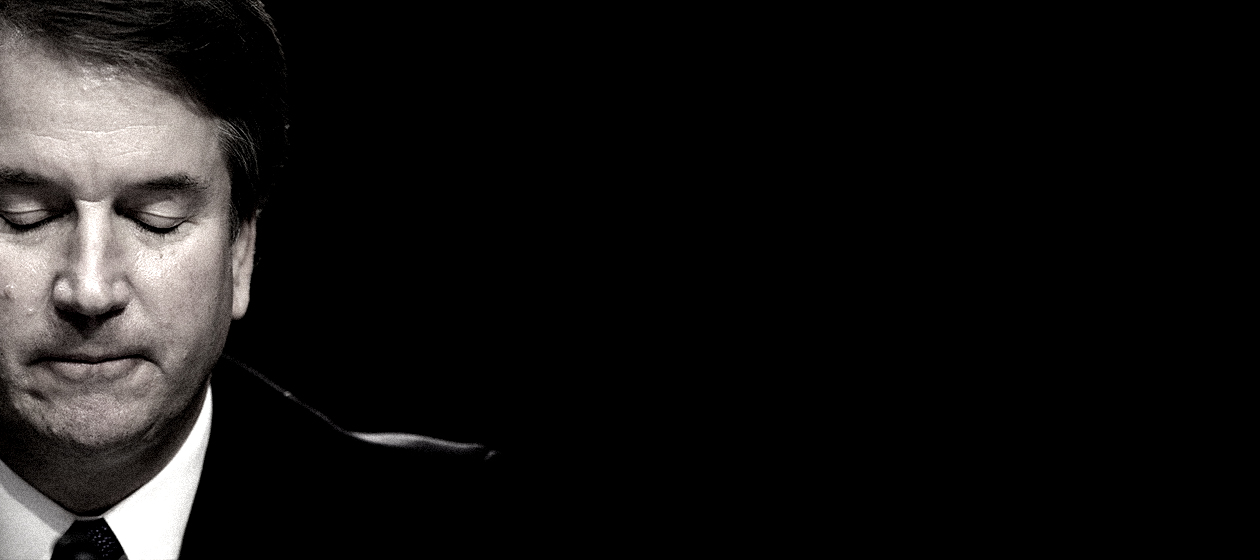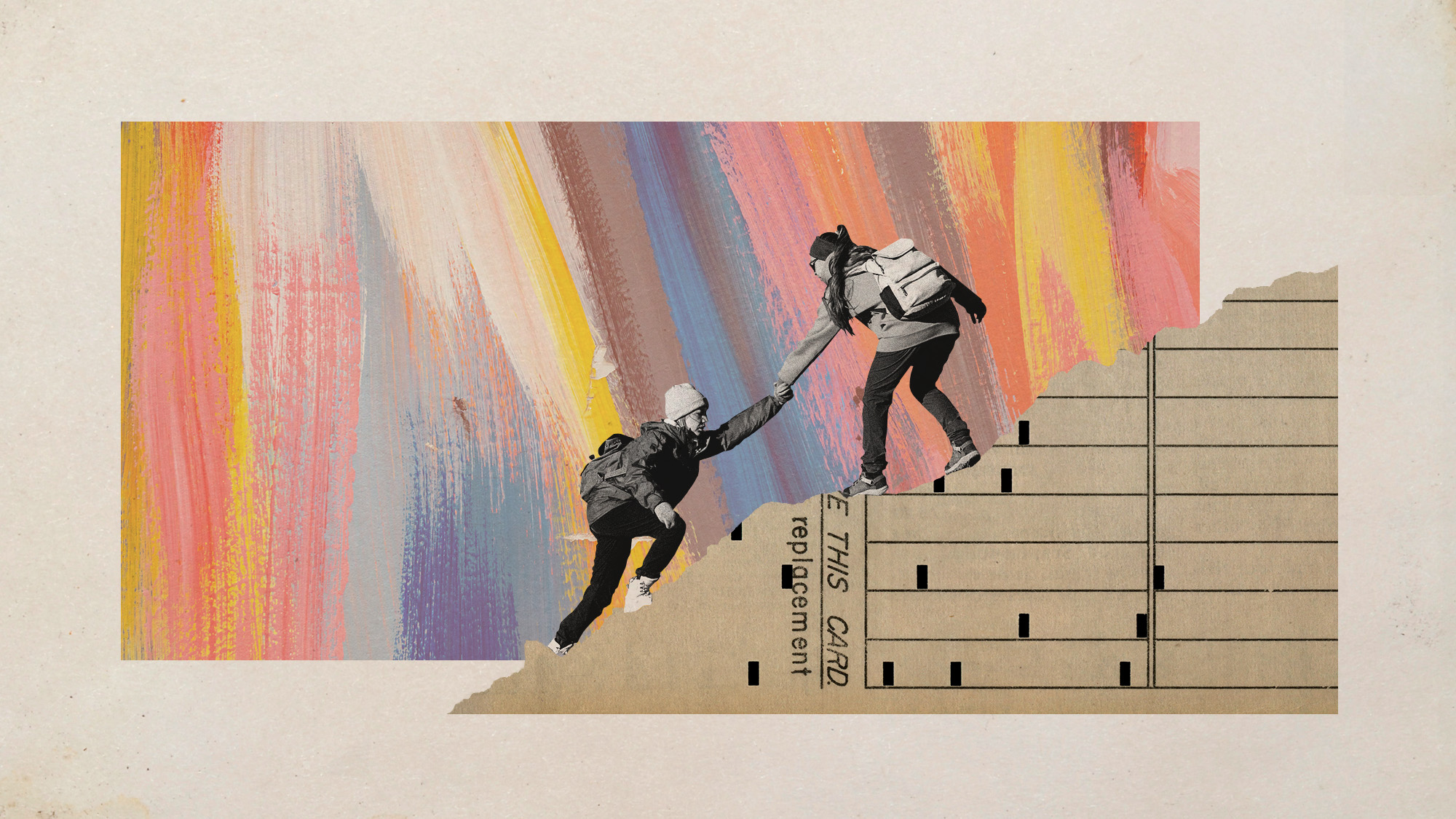Brett Kavanaugh reveals the utter moral corruption of American conservatism
No excuse is too shameful when one of their own might face accountability for bad behavior


Brett Kavanaugh's nomination to the Supreme Court has been thrown into question over the last few days, as unconfirmed rumors became a specific allegation of attempted sexual assault in his past. Christine Blasey Ford spoke to The Washington Post, alleging that when he was a 17-year-old at Georgetown Prep and she was 15, Kavanaugh got drunk and pinned her on a bed, groping her and trying to take her clothes off. A friend named Mark Judge allegedly watched for a time, then jumped on top of them, knocking them off the bed and allowing Ford to escape.
To Republicans' credit, the Senate Judiciary Committee will hold a public hearing next week on the allegations. To their discredit, it's already pretty clear what they'll argue in the days ahead. Kavanaugh has categorically denied the accusation, Trump has promised to attack Ford, and even a great many so-called #NeverTrump Republicans have made excuses, casting the alleged act as the excusable behavior of a child not yet fully grown. It's all an extremely gross demonstration of the pinched moral horizons and corruption of American conservatism.
First, let's consider the accusation itself. Such a story basically boils down to one person's word against another. Because no rape actually took place, Ford never went to the police, and there were no other witnesses, there can be no direct empirical evidence either way. But we can consider some circumstantial evidence. The Post story reports that she has notes demonstrating she told her story to her therapist six years ago, thus ruling out a recent invention for political reasons. Mark Judge also wrote a memoir describing drunkenly chasing women in his youth, and until the allegations came out had a YouTube channel dedicated to weird quasi-softcore porn music videos.
The Week
Escape your echo chamber. Get the facts behind the news, plus analysis from multiple perspectives.

Sign up for The Week's Free Newsletters
From our morning news briefing to a weekly Good News Newsletter, get the best of The Week delivered directly to your inbox.
From our morning news briefing to a weekly Good News Newsletter, get the best of The Week delivered directly to your inbox.
A false accusation might torpedo the nomination, but on the other hand, Ford is already suffering a coordinated effort to smear her reputation, get her fired, and destroy her life. What's more, if this nomination goes down, it's quite likely Kavanaugh will just be replaced with another hard-right ideologue from the Federalist Society catacombs who hasn't assaulted or harassed anyone (there's sure to be at least one). As a cynical political ploy, it makes little sense.
Plus, privileged prep school boys who hang out at an ultra-elite country club (the kind that former presidents join), who go to parties, get hammered, and commit crimes is a common enough story. Ford's accusation is at least credible.
It should come as zero surprise that Trump immediately announced he was going to attack Ford instead of withdrawing the nomination. He is credibly accused himself of sexual assault and by double-digit numbers of women. Something similar appears to be true of a "lawyer close to the White House," who was granted anonymity by Politico to say: "If somebody can be brought down by accusations like this, then you, me, every man certainly should be worried. We can all be accused of something."
But other right-leaning voices, like writer Rod Dreher, Washington Post columnist Megan McArdle, and Sen. Orrin Hatch (R-Utah), as well as some liberals like Georgetown Law professor Rosa Brooks, have professed great worry at what this means for the future of people who committed crimes as minors. Brooks argues people should be allowed to grow out of youthful mistakes, while Dreher insists that "loutish drunken behavior" at age 17 doesn't reflect on adult character. McArdle, meanwhile, insists that even a child murderer should be allowed on the Supreme Court. Hatch, meanwhile, says this:
A free daily email with the biggest news stories of the day – and the best features from TheWeek.com
Some minor little indiscretion (or felony sexual assault, as the case may be) from decades ago might mean somebody could be forever forbidden from sitting on the Supreme Court! A truly heartrending tragedy.
As Eric Levitz argues, this is incredibly rich coming from the political faction that fueled the construction of the mass incarceration system. As a direct result of Republican law-and-order politics, hundreds and hundreds of children have been tried and convicted for crimes committed as minors — and so many adults that the U.S. is by far the most incarcerated country on Earth. (To be fair, many Democrats participated in the policies as well.) The Central Park Five were falsely convicted of rape and assault at ages between 14 and 16, while Lionel Tate was sentenced to life in prison without the possibility of parole for killing another child when Tate was 12.
It is true that the American incarceration system is a hellish nightmare and badly needs fundamental reform. But even the most vigorous criminal justice reformers generally admit the need for some punishment and contrition for severe crimes. For example, a boy was once sentenced to life in prison for shooting a woman when he was 13 years old, but he wrote letters begging for forgiveness while in prison and was eventually released. Remarkably, his victim helped him transition into normal life afterwards, and they became friends. (That's not to say that life imprisonment is appropriate for 13-year-old perpetrators, of course, but that the story was a good example of forgiveness and rehabilitation.)
By contrast, Kavanaugh was neither investigated nor punished in any way for his alleged crime. This conversation is not about getting out of prison, or expunging his record, but whether he shall have power to overturn any law or previous Supreme Court ruling he wants, so long as four colleagues agree — including the right of women to obtain an abortion. Neither has he apologized or sought forgiveness.
Instead Kavanaugh has denied the assault ever took place — which also bears directly on his morality and honesty right now. It is certainly possible he is right and Ford is lying or misremembering the event. But the very first public thing Kavanaugh did as a Supreme Court nominee was lie straight through his teeth, preposterously asserting that: "No president has ever consulted more widely or talked to more people from more backgrounds to seek input for a Supreme Court nomination."
At a minimum, this story deserves careful consideration at next week's hearing. But if the moral debauchery of the Republican Party is any guide, deceit is much more likely in the offing.
Editor's note: This article originally misstated Rosa Brooks' political leanings. It has since been corrected. We regret the error.
Ryan Cooper is a national correspondent at TheWeek.com. His work has appeared in the Washington Monthly, The New Republic, and the Washington Post.
-
 Prickly pear juice recipe
Prickly pear juice recipeThe Week Recommends Jewel-toned, natural juice is a thirst-quenching treat
-
 The truth about vitamin supplements
The truth about vitamin supplementsThe Explainer UK industry worth £559 million but scientific evidence of health benefits is ‘complicated’
-
 Is convenience culture killing community?
Is convenience culture killing community?In The Spotlight A decline in emotional intelligence could be responsible for a diminished sense of belonging
-
 Bari Weiss’ ‘60 Minutes’ scandal is about more than one report
Bari Weiss’ ‘60 Minutes’ scandal is about more than one reportIN THE SPOTLIGHT By blocking an approved segment on a controversial prison holding US deportees in El Salvador, the editor-in-chief of CBS News has become the main story
-
 Has Zohran Mamdani shown the Democrats how to win again?
Has Zohran Mamdani shown the Democrats how to win again?Today’s Big Question New York City mayoral election touted as victory for left-wing populists but moderate centrist wins elsewhere present more complex path for Democratic Party
-
 Millions turn out for anti-Trump ‘No Kings’ rallies
Millions turn out for anti-Trump ‘No Kings’ ralliesSpeed Read An estimated 7 million people participated, 2 million more than at the first ‘No Kings’ protest in June
-
 Ghislaine Maxwell: angling for a Trump pardon
Ghislaine Maxwell: angling for a Trump pardonTalking Point Convicted sex trafficker's testimony could shed new light on president's links to Jeffrey Epstein
-
 The last words and final moments of 40 presidents
The last words and final moments of 40 presidentsThe Explainer Some are eloquent quotes worthy of the holders of the highest office in the nation, and others... aren't
-
 The JFK files: the truth at last?
The JFK files: the truth at last?In The Spotlight More than 64,000 previously classified documents relating the 1963 assassination of John F. Kennedy have been released by the Trump administration
-
 'Seriously, not literally': how should the world take Donald Trump?
'Seriously, not literally': how should the world take Donald Trump?Today's big question White House rhetoric and reality look likely to become increasingly blurred
-
 Will Trump's 'madman' strategy pay off?
Will Trump's 'madman' strategy pay off?Today's Big Question Incoming US president likes to seem unpredictable but, this time round, world leaders could be wise to his playbook
